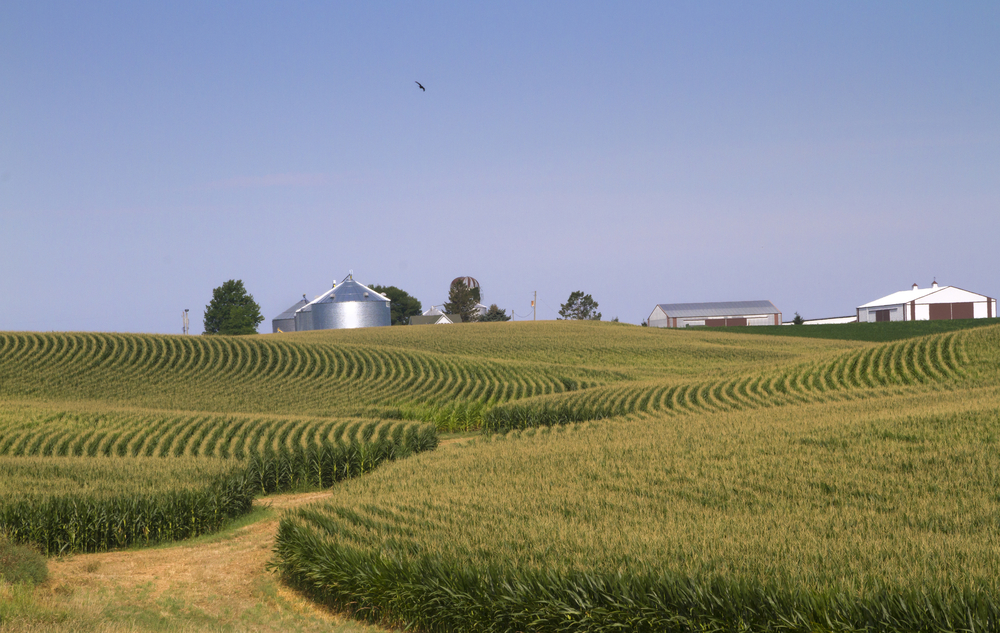Increased farmland prices are preventing those who need land from buying it.

When Bill Gates became the largest private owner of American farmland, eyebrows lifted.
But Gates, despite some interests in food technology, was simply doing what wealthy investors have been doing, in increasing volume, for years: treating farmland as a commodity, a particularly rock-solid investment that can be flipped later for a profit. Jesse Newman at the Wall Street Journal has a first-hand look at what this trend is doing for actual farmers who’d like to farm on that land.
Although farmland acreage prices are down from their peak in 2013, in peak crop country, those prices are still increasing, even despite a global shutdown from the COVID-19 pandemic. In Iowa, finds a study by Iowa State University, an acre of cropland gained 1.7 percent in value just in 2020—and that’s with food systems massively disrupted.
Newman’s article talks to farmers and ranchers throughout the Midwestern Farm Belt, many of whom are fearful for their own stability. More recent studies find that Iowa’s farmland prices are up by 8 percent since September; in the valuable farmland surrounding Chicago, those prices are up by 6 percent, the highest in years.
The chief problem is a farmer’s inability to control, or often even own, their own land, which puts a tremendous amount of control in the hands of a person or entity that is not farming that land. These landlords, many of which are simply investors or investment groups, can raise rent prices to the point where farmers can’t make a profit, because the value of the land continues to increase. Farmland is considered one of the most stable, profitable investments in all of real estate, so owners feel comfortable raising prices for renters—or just holding on to land that isn’t being farmed at all.
This also means that it’s tremendously difficult for existing farmers to expand their businesses or for beginning farmers to get their feet in the door at all. About 54 percent of American cropland is rented, according to the USDA, and those renters are in a very precarious situation.
How about an article about how much those investment landowners are willing to pay/invest to improve the quality of the soil; what their attitude is to cover crops, winter crops, carbon sequestration. If they support carbon capture with the work being done by the farmers, who gets the credits?
Land ownership is a two-edged sword for farmers. It has always taken a lot of capital to buy land, and owning too much land can prevent farmers from adequately capitalizing other parts of their operations. Small and new farmers in particular are pretty much shut out of land ownership unless they come into farming with existing capital. We are moving into a future where farmers will be CEO-level managers of businesses using assets owned by multinational companies. The age of the independent farmer entrepreneur is drawing to a close. While some might consider this sad, it is actually a long-overdue… Read more »